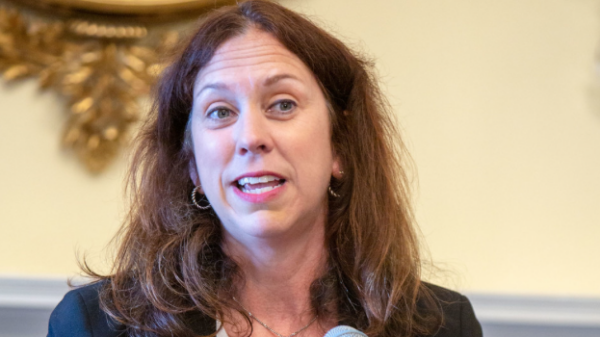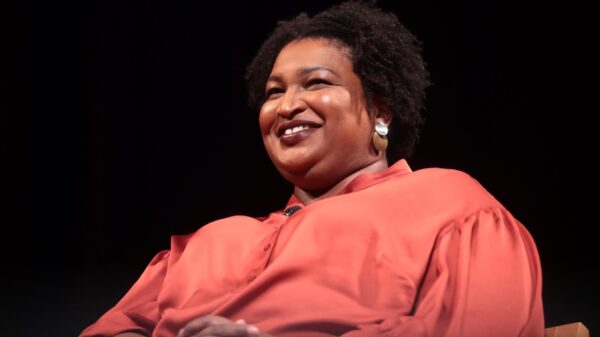To promote U.S.-Africa relations and highlight new partnerships geared towards creating economic opportunities in both Africa and the U.S. in the public and private sectors, the U.S. Department of State hosted the U.S. Africa Leaders Summit—the second event of its kind after the Obama administration held the first in 2014.
The 2022 U.S.-Africa Leaders Summit took place in Washington, D.C., from December 13-15 and featured delegations from 49 of the 54 African countries. Further, 246 African and African American companies were represented.
“The 3-day summit continued efforts to strengthen ties with African partners based on principles of mutual respect and shared interests and values. It also served as an opportunity to listen to and collaborate with African counterparts on key areas the United States and Africa define as critical for the future of the continent and our global community,” according to the U.S. Department of State’s website.
In August, the Biden Administration released the new “U.S. Strategy Toward Sub-Saharan Africa” which was historic in the sense of underscoring Africa’s importance. It emphasized Africa has “one of the world’s fastest-growing populations, largest free trade areas, most diverse ecosystems and one of the largest regional voting groups in the United Nations (UN),” and hence is crucial in shaping the world’s future.
The new strategy also comes following Africa’s role having been diminished under the Trump administration.
The first day featured discussions and panels involving African and African American leaders and experts across various sectors discussing matters ranging from trade and investment, health, governance, climate and space exploration. These included the Civil Society Forum focusing on partnerships related to Africa’s Agenda 2063 strategy which details the union’s vision for Africa and the global African diaspora’s advancement.
Vice President Kamala Harris, the first Black person and woman to serve in her position and a 1986 graduate of Howard University, spoke at the African and Diaspora Young Leaders Forum. There, she reaffirmed the importance of the future of young African leaders and entrepreneurs.
“By working together, we can unlock growth and opportunity that far exceeds what any of us can achieve on our own. But we must invest in this coalition. So let us work together to foster the spark of creativity and ingenuity in Africa’s young leaders,” Harris said.
The Africa Business Forum took place on the second day and featured the keynote address by President Joe Biden. In his remarks, Biden emphasized that this new emphasis to prioritize working with Africa was at the forefront of his administration and underscored the power of building on the connections to advance Africa and the U.S.
“When Africa succeeds, the United States succeeds. Quite frankly, the whole world succeeds as well,” Biden said.
He also emphasized that strengthening business relations involves supporting Africa in all realms, such as health and democracy, citing ”good government, healthy populations and reliable and affordable energy” as vital factors to the continent’s economic strengthening.
“The United States is committed to supporting every aspect — every aspect— of Africa’s inclusive growth and creating the best possible environment for sustained commercial engagement between African companies and American companies,” he said.
Additionally, the President announced a three-point plan for supporting the economic relationship between the two regions.
These involve first, announcing a Memorandum of Understanding for U.S. cooperation on trade and investment with the African Continental Free Trade Area. The second piece is more investment into infrastructure and policies to support trade within Africa. Lastly, millions will be put toward efforts to support African entrepreneurship through areas like clean energy, farming, and the Digital Transformation with Africa initiative to expand affordable and reliable internet access. The initiative also includes partnerships with companies like Microsoft with tech training for African business owners.
The third and final day of the Summit centered on discussions between Biden and African leaders in relation to the African Union’s Agenda 2063.
The Principal Deputy Assistant Secretary in the Bureau of African Affairs, Ervin Massinga, spoke with The Hilltop about building connections between African Americans and Africa through institutions like historically Black colleges and universities (HBCUs) and highlighted President Biden’s announcement of the US African Diaspora and Africa Council to converse on issues of concern, healthcare entrepreneurship and more.
“We look forward to dialogue and communication with HBCUs and faith groups and all types of specific organizations all around America who care and are hungry for and looking for opportunities to touch base on issues of concern to them, be it healthcare, entrepreneurship, environment….Our council is the vehicle to expand that dialogue,” Massinga said.
Massinga discussed economic opportunities as well, saying that while tools such as the Foreign Commercial Service, Export and Import Bank and others have existed for trade with Africa, more was needed.
“We need to do better and be more creative….But we need to hear from members of the diaspora, youth, entrepreneurs and others who have ideas and who demand attention from their government on what to do, he said.”
“The dialogue that is at the heart of the Summit shows that we’re not here to tell our African friends what to do and what the solutions are… this is a solution that gets answered through dialogue.”
A series of side events surrounding the Summit took place during the week as well, bringing together various African leaders and members of the diaspora networking from the public and private sectors.
Copy edited by Nhandi Long-Shipman









